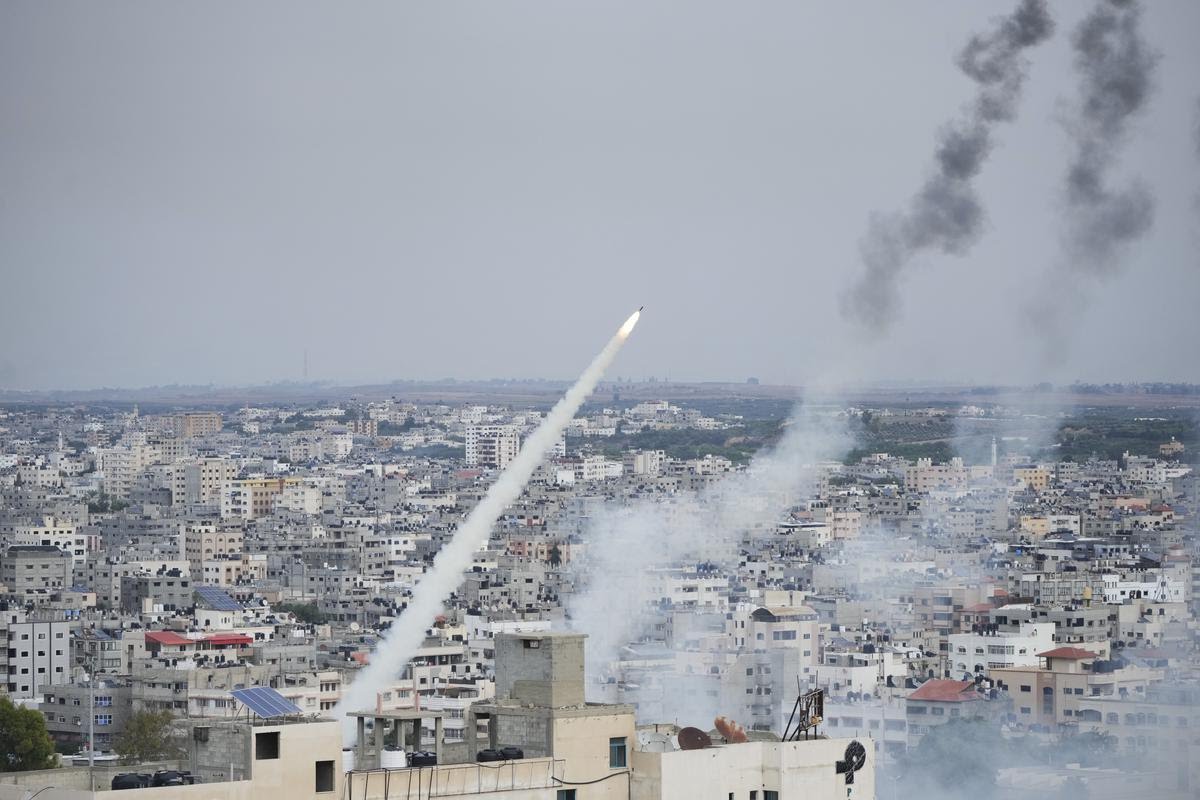


An interconnected world is a good thing; we all know and admit that. The issue, however, is that with interconnectedness comes access, and scores of state and non-state players engage themselves in the different spheres of regional and/or global politics. When events like the 7/10 Hamas attack on Israel takes place, and when it becomes a major guessing game about the probable causes or the planners behind, the same interconnectedness allows the big players to hide behind the small ones, and influence us to believe, like they once tried to make us believe that those few men in black masks and Toyota pickups were the reason Iraq and Syria needed to be liberated.
As far as 7/10 is concerned, Hamas remains the designated small player. Given the number of fidayeens they have engaged – hundreds, according to some sources, this is not like a few rockets from a Gaza terrace, or a dozen Molotov cocktails at some Israeli checkpoint. This is a seriously networked and coordinated mega-assault – one that would need massive amounts of intel, money, assets (probably within Israel too), manpower, and highly-capable equipment. Frankly, all of that at the same time is beyond Hamas.
Hamas normally means Iran. But the question here is, in a possible scenario that might swallow the entire West Asia and all its sectarian divide, is Iran big enough to handle the fallout, with Russia engaged heavily in Ukraine and China characteristically queasy about open armed confrontations?
That bit of haze persists
There are many actors. Pair that up with a couple of odd angles that cry for attention. Like, people are calling it a colossal failure of Israeli intelligence, and it could absolutely be so. But normally, wouldn’t that mean Israeli forces jumping in immediately to salvage whatever it was salvageable? And yet, there are tweets about personal experiences of Israeli civilians who hid in closets and safe rooms, trying to avoid the terrorists’ bullets as they kept requesting help over their phone – an ordeal that in some cases went on for five to six hours! For Israel – a country that is small, extremely well networked militarily, and perhaps one of the best guarded regions in the world – a delay of five hours in response, especially when caught napping, sounds criminally indifferent.
Speaking of interconnectedness, the planning for the kind of attack that Hamas finally mounted could not have been done in isolation. They have had help, most certainly from other states and players like Iran, Hezbollah, and Qatar. To fail to intercept a single sequence of communication between Hamas (an outfit which is perhaps top on Israel’s terrorist monitoring list) and their patrons, of a plan that has to have been planned for months at least if not more, remains another odd angle. This sounds almost like the US intelligence, which is perfectly capable of prying into your computer to understand your browsing patterns, failing to locate mile-long ISIS Toyota convoys roaming freely around literally the entire Syria and Iraq.
READ MORE: Understanding why Hamas attacked Israel
Even discounting as propaganda, the Palestinian videos that show Israeli army officers captured by Hamas, consider the ease with which the terrorists broke through fences, flew gliders, drove back IDF military vehicles, and in some cases even occupied army outposts. Some suggest that Israel was caught napping because they have become a soft-state with the long quiet and a regional dominance. A visible symbol of the same has been the appearance of the left-liberal crowds, the electoral victory of a left-leaning leader to the highest position, or demonstrations against the present conservative government’s decisions, complete with rainbow flags and all. There could be a grain of reality in that assumption; however, a crucial question is, can a few odd years’ spurt in LGBT population fundamentally alter the genetic composition of a state that has literally been the copybook of ruthlessness in dealing with its enemies since the last 7 odd decades?
It is only once we manage to navigate past such uneasy queries comes the question “who could possibly benefit?”
There are many players that stand to gain; China for one. The popular opinion making rounds is that China is worried that the Middle Eastern Corridor is primed to reduce the importance of BRI. Russia – along the same lines, that of the INSTC – is the second popular assumption. Some say that Joe Biden wants to insert himself into the affairs of the Middle East now that Ukraine is faltering, just to secure his 2024 re-election, while others point towards Turkey that might want to sabotage the ME Trade Corridor, or an Iran, emboldened by recent US overtures wanting to increase its influence in the region, and so on.
All these options sound feasible in the Middle Eastern geopolitical chessboard. And one or more player(s) would definitely stand out in the long run. But right now, a simple answer to “who benefits” would be “that depends on how wide and to what extent the resultant conflict spreads.”
Of course, there are a dozen variables that can keep mutating – this is a common feature of such orchestrations. But the broad contours so far suggest that Israel could choose to restrict its military response within Gaza while trying to pre-empt the Lebanese Hezbollah threat more or less locally. Or Israel and/or USA could choose to move wide and bring Iran in their radar [In case it is the latter, that might hint towards a rift between the White House and US Military].
I am sure we will find out soon enough.
(Arindam Mukherjee is a geopolitical analyst and the author of JourneyDog Tales, The Puppeteer, and A Matter of Greed.)